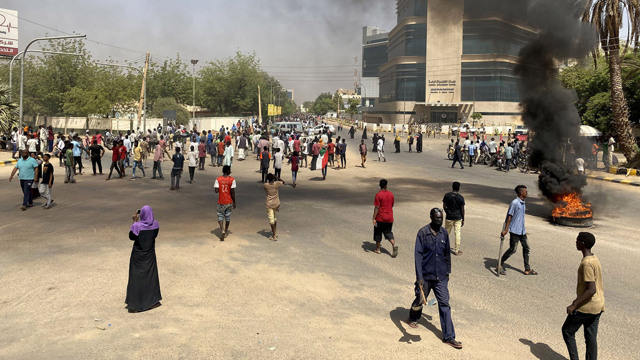26 October 2021 10:02
Sudan represented one of the last attempts at democratization still underway in the Arab world, but on 25 October some soldiers put an end to the experiment with a coup against the transitional government born after the revolution of 2019, which had overthrown the dictatorship by Omar al Bashir. The coup troops met with the initial resistance of the population. Some people lost their lives during the fighting.
The transition was extremely fragile. The ultimate goal was the organization of new elections, but in recent months few observers would have bet on the possibility of getting there smoothly. The process was based on a delicate compromise between civil society and the generals of the old regime. The prime minister of the transitional government, Abdallah Hamdok, spoke of a “paradoxical alliance” between civilians and military, between revolutionaries and old executioners.
The paradox ceased to exist on October 25: the head of the government, an economist who previously worked for the United Nations, was arrested and taken to an unknown location on charges of refusing to cooperate. Other civilian leaders were arrested. Internet access has been blocked. Radio and television only broadcast music programs. Armed men in the service of the coup patrol the capital.
The military is now alone in command after getting rid of the goad of civil society
The leader of the junta who announced in uniform the dissolution of the transitional government is General Abdel Fattah al Burhan, who represented the military front in the alliance with civilians. A former army chief, Al Burhan rose to prominence after the fall of Al Bashir in April 2019, when he was given functions equivalent to those of the head of state.
The military is now alone in command after getting rid of the goad of civil society, and at this point they are in a position to save the important industrial sector linked to the army that the civilians wanted to deprive them. This economic dimension has a considerable weight.
The military also seeks impunity for past crimes. The number two of the military, Mohamed Hamdan Dagalo, aka Hemetti, commanded a paramilitary force accused of massacres, also in Khartoum during the revolution of 2019. At the end of the transition he would probably have to face a less complacent judiciary.
But the Sudanese are a combative people, as they have shown at various stages of their history, and their civil society is well structured. The problem is that the military seems absolutely determined, and a prolonged period of confusion appears inevitable.
Even though it was in the air, the coup took the rest of the world by surprise. A US representative was in the country on the eve of the coup to try to calm the waters. A European commissioner was flying to Khartoum when the coup took place.
The setback to the complete transition must be considered as the failure of a double wave of anti-authoritarian movements in the Arab world: the first in 2011, in the wake of the Tunisian revolution, and the second after 2018 in countries such as Lebanon, Algeria and Sudan.
This cycle came to an end this summer in Tunisia with President Kais Saied’s coup. Today it also ends in Sudan. The counter-revolutions are winning. But it will not be the end of the aspiration of the new generations of the Arab world towards freer societies.
(Translation by Andrea Sparacino)
.
